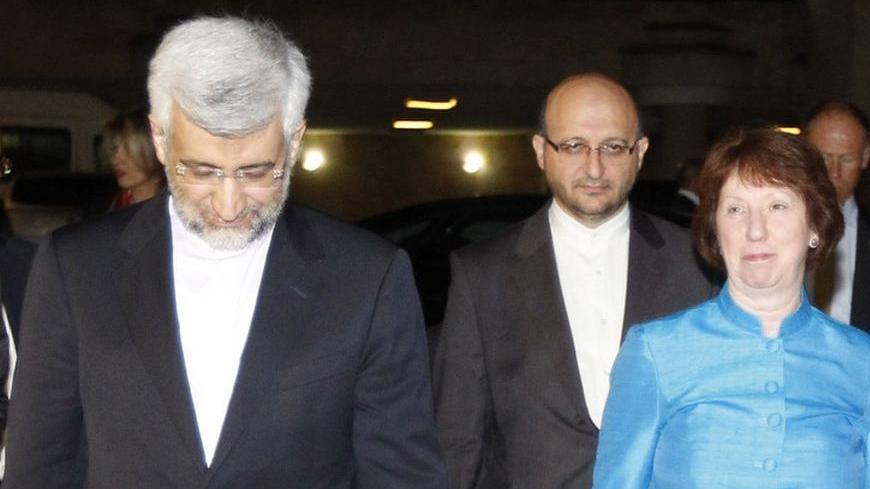The US is looking to resume negotiations with Iran after US presidential elections, according to people familiar with the planning, but the window for new talks is likely to be short no matter who wins.
If Barack Obama is re-elected Nov. 6, his administration will have only about five months until Iran becomes embroiled in its own presidential contest next spring. If Mitt Romney wins, the Obama team will have an even shorter period and both Iran and the US may feel constrained about signing a deal that might be repudiated by the next US president.
Romney would likely need some time to review Iran policy and might not pick up where Obama left off — much as George W. Bush repudiated Bill Clinton’s negotiating strategy with North Korea in 2000.
Separately, a senior European official said last week that the purpose of the sanctions was “to bring the Iranian economy to its knees in a way that hurts the regime more than the people” — a goal that he admitted would be “very difficult to achieve.”
In a major foreign policy address today (Oct. 8), Romney made no mention of negotiations in referring to Iran. He vowed to prevent Iran “from acquiring nuclear weapons capability” — a tougher if vaguer red line than Obama’s pledge to prevent Iran from acquiring actual nuclear weapons.
The Republican nominee stressed economic coercion and a show of military might to achieve this end. He said he would “not hesitate to impose new sanctions on Iran” — even as those already imposed are causing severe economic pain — and said he would beef up the US military presence in the Eastern Mediterranean and the Gulf. Romney also said he would “work with Israel to increase our military assistance and coordination” and vowed that “the world must never see any daylight between” Israel and the United States. Romney did not threaten war but said such a tough posture was necessary “for the sake of peace.”
Judging from a presentation by Israeli Prime Minister Benjamin Netanyahu at the United Nations last month — in which he drew a red line across a crude cartoon of a bomb — Israel will not take unilateral action against Iran before next spring.
The United States and Iran should take advantage of this brief window to find a way to cap the most destabilizing aspects of the Iranian nuclear program in return for some economic relief for Iranians.
The longer the crisis escalates, the more fully functional centrifuges Iran will install at a well-protected underground facility near Qom called Fordow — which is also the source of growing stockpiles of uranium enriched to 20% U-235, perilously close to weapons grade.
As the nuclear program advances, so too do US and European sanctions which have already contributed to a precipitous drop in the value of Iran’s currency and the first large public protests against the regime since February 2010.
The European Union is expected to announce Oct. 15 a new set of sanctions which will tighten loopholes in existing measures that block European imports of Iranian oil and prevent European financial institutions from handling transactions with Iranian banks. The Europeans are also contemplating halting purchases of Iranian natural gas.
Sanctions are already having an adverse effect on ordinary Iranians. In a report to the UN Security Council released on Friday (Oct. 5), UN Secretary General Ban Ki Moon wrote that “the sanctions imposed on the Islamic Republic of Iran have had significant effects on the general population, including an escalation in inflation, a rise in commodities and energy costs, an increase in the rate of unemployment and a shortage of necessary items, including medicine.”
Ban went on to say there is a shortage of drugs used to treat cancer, heart and respiratory conditions and multiple sclerosis, among other conditions, because foreign drug companies can no longer figure out how to get paid through the international financial system — something Al-Monitor has already reported .
Simply piling on more sanctions will lead down the road traveled with Iraq a decade ago in which trade and financial restrictions seriously undermined the health and welfare of the general population. This produces a situation in which sanctions inevitably begin to unravel because the targeted regime can brandish pictures of starving children and label sanctions as immoral. That, perversely, can strengthen calls to use military strikes as somehow more humane than prolonged economic punishment.
Thomas Pickering, a former undersecretary of state who has held so-called Track II meetings with Iranians, suggested a “simple first package” including an agreement to limit 20%-enriched uranium production and to convert stockpiles into a form not easily further enriched to weapons grade — something Iran has already begun to do. Such a deal, Pickering told an audience at the National Iranian American Council last week, would entail accepting an Iranian right to enrich uranium but “heavily limiting” that right to would provide assurance that Iran cannot easily build a weapon. This would be accompanied by a “step-by-step gradual reduction in sanctions,” Pickering said.
Over the summer, Iran put forward its own step-by-step proposal but insisted on complete sanctions relief up front, a position that the US and its negotiating partners rejected. The P5+1 in turn offered some incentives for stopping 20% enrichment, but no sanctions relief.
As Iran continues to advance its nuclear program and sanctions increasingly impact the Iranian economy, both sides may be willing to show more flexibility. Speaking to reporters last week, Secretary of State Hillary Clinton said that sanctions “could be remedied in short order if the Iranian government were willing to work with the P5+1 and the rest of the international community in a sincere manner.”
She did not specify which sanctions might be lifted or suspended.
Barbara Slavin is Washington correspondent for Al-Monitor and a senior fellow at the Atlantic Council. She moderated the Iran panel cited above. She tweets at BarbaraSlavin1.



